Official Secrets Act reforms, harsher on journalists, whistleblowers
The British government has proposed reforms to the Official Secrets Act that could potentially see journalists and whistleblowers punished with much harsher sentencing for publishing things that the government doesn't like.
This comes as the United Kingdom has granted the United States limited permission to appeal a judge's decision In January not to extradite Julian Assange.
A key witness for the US prosecution recently admitted to fabricating their testimony against Assange. So why is the UK allowing the proceedings to go ahead anyway and clamping down on the rights of journalists?
The case against Julian Assange is not just an attack on journalism; it's a case that is filled with anomalies, illegalities, government wrongdoing and foul play.
The extradition hearing for Julian Assange took place almost a year ago in September 2020 in London, dubbed the trial of the century, which we covered extensively on this programme.
In January, earlier this year, the judge overseeing the case, district Judge Vanessa Baraitser, decided not to extradite Julian Assange to the United States.
The incoming Biden administration made it clear that it would be appealing this decision, and moving forward with the Trump administration's plan to jail the Australian journalist and founder of WikiLeaks.
Six months later, in July 2021, a British High Court gave the United States permission to appeal that decision.
The United States attempted to appeal the ruling on five grounds, however, only three were granted by the High Court. The grounds for appeal almost exclusively deal with his health and the potential risk of suicide, were he to be sent to the United States.
During both pre trial and post trial, Assange would most certainly be placed in solitary confinement in a US Federal super maximum security prison, such as ADX Florence in Colorado.
Judge Baraitser ruled that an extradition to the United States would pose such a significant risk to Assange's health, that she blocked it on those grounds.
However, she did agree with all of the other arguments put forward by the US prosecution, namely, the political charges such as espionage and conspiracy to commit computer intrusion.
If convicted, Assange could face up to 175 years in prison. Such a ruling is dangerous because it effectively criminalizes journalism and national security reporting, sending a clear warning that if you publish damning evidence of US war crimes in Iraq and Afghanistan, Guantanamo Bay, and diplomatic cables, you will be sent to jail for informing the public.
Now this means that an appeal in the UK High Court will only discuss Julian Assange's health, and the prospects of his extradition, and nothing else, since the judges have already accepted that his publishing his work as journalism amounts to criminal behavior.
Disaster for journalists everywhere
Needless to say this is a disaster for journalists everywhere, and highlights just how problematic the entire case is.
The defense does have an opportunity to cross appeal the decision, which would allow them to dispute the judge's agreement with the political charges. However, this is uncertain since no announcement has been made on the possibility of such a move thus far.
Now just as the United States was granted this limited permission to appeal, it turns out, the United States also made an offer to the UK that it could let Julian Assange, potentially serve his sentence in his home country of Australia.
The US also provided assurances that it would not place Julian Assange under special administrative measures, also known as SAMs, a very strict regime where prisoners are kept in solitary confinement for up to 23 hours a day; all of their incoming and outgoing mail is screened.
They are only allowed one telephone call a month, for 30 minutes only, to a pre approved person, and they must request this call in advance so that a government agent can be made available to monitor the conversation.
Any conversations with their lawyers are also monitored, and, in fact, the lawyers themselves are placed under a gag order, preventing them from telling the outside world about their clients’ conditions, and what's happening inside the jail. These horrific conditions are very likely what Assange would be faced with were he to be extradited to the United States.
Everyone understands this, including judge Baraitser.
During the hearing, the attorney representing the United States has repeatedly argued that SAMs were not that bad. They made an attempt to portray these inhumane prison conditions in the United States as acceptable or humane.
The prosecution even argued that there was an appeals process for prisoners to progressively lift these restrictions on themselves, even though not a single prisoner has ever succeeded in doing so.
Now Gary McKinnon, who's a Scottish Systems Administrator, said to have perpetrated the biggest computer hack of all time. In 2002 he accessed computers belonging to the US Air Force, Navy, the Department of Defence, NASA and much more.
The US also tried to extradite him to face jail time, but ultimately failed after a lengthy and grueling legal battle that lasted a decade.
We spoke with Gary not too long ago and asked him about the so called assurances that he was given by the United States at the time, and unsurprisingly, he described them as worthless, just like the recent assurances that have been made to Assange.
Responding to these so called assurances, Assange's partner and fiancé, Stella Morris said "they aren't worth the paper, they're written on".
US Nappy Snatcher
She was quick to point out that these assurances emanate from the same US figures and organizations that spied on Assange and had even tried to steal one of their son's diapers from the Ecuadorian Embassy for DNA analysis.
Morris also lambasted the media for reporting inaccurately on these assurances as if they were set in stone and 100% guaranteed when in fact there is a very important distinction to be made.
The United States did not say that it would not place Assange under SAMs, what it said was that it might not place Assange under SAMs and that is not the same thing.
In their so called assurances, the US explicitly says that it still reserves the right to place Julian Assange under special administrative measures if he does something that would warrant such a regime, whatever that might be.
The US also said that it won't place Assange in ADX Florence, which is the super maximum prison in Colorado. It didn't say it wouldn’t place him in any other super-max facility, it just said it would not be ADX Florence. That certainly is a problem, despite ADX Florence being the only super maximum security prison at the federal level, the United States has many other super maximum prisons, and it did not say that it wouldn’t place Assange in any of the other super maximum prisons, it only mentioned ADX Florence.
Again, this is why no one can trust the United States and their reassurances because they don't mean anything.
The United States also said that Assange will be able to serve a sentence in Australia but why should Assange serve any sentence, whether in the US or Australia or elsewhere?
Assange is an innocent man. He's not been convicted of the crimes that they're accusing him of, and yet, he still sits in Belmarsh prison in a maximum security cell. Why is that?
Ultimately the decision to place him under special administrative measures will be left up to the CIA director and the Attorney General, and given the intelligence community's animosity and contempt for Assange, and the fact that the DOJ has been going after him so viciously, from administration to administration, it's absolutely guaranteed that he will be placed under SAMs there's no doubt about this, as the US openly advocated this possibility in court.
Now these developments, however, come at a strange time. Barely a week before the United States was granted limited permission to appeal; a bombshell revelation appeared in an Icelandic newspaper named Stundin.
One of the key witnesses in the case against Assange admitted that he had lied and fabricated his entire witness statement against the Wikileaks founder.
Sigurdur Thordarson, also known as Siggy the Hacker, is referred to in the US indictment as Teenager. Now this superseding indictment was unsealed in June 2020 just before the extradition hearing was set to proceed at The Old Bailey in London.
The new indictment contained no new charges, instead it only had conduct, alleged conduct, which refers to narrative taken from testimonies like Siggy the Hacker's or from Sabu, another hacker turned FBI informant.
This alleged conduct had only one purpose, to paint Assange as a hacker and a cybercriminal rather than a journalist.
And although there were no new charges this alleged conduct would be helpful for the prosecution in securing a conviction and or stronger sentencing.
In his witness statement to the court Thordarson exaggerated his relationship with Julian Assange and WikiLeaks.
He falsely claimed that Assange had instructed him to commit a number of crimes together, so just stealing encrypted banking files and recording the phone call conversations of members of parliament in Iceland referred to in the indictment as NATO country one Thordarson now admits to Sundin that Assange never asked him to hack or access phone recordings of MPs.
His new claim is that he had in fact received some files from a third party who claimed to have recorded MPs and had offered to share them with Assange, without having any idea what they actually contained.
He claims he never checked the contents of the files, or even if they contained audio recordings, as his third party source suggested.
He further admits the claim that Assange had instructed or asked him to access computers in order to find any such recordings, is false.
Now during his time with WikiLeaks Thordarson also worked to hurt the organisation, he impersonated Julian Assange and embezzled $50,000 from online sales, while committing various other crimes, unbeknownst to Assange and WikiLeaks, "Thordarson also admits that he stole documents from WikiLeaks staff by copying their hard drives".
Among those were documents from Guatemalan lawyer, Renata Ávila, who worked for the organisation and Mr Assange. Thordarson went on to contact the US Embassy in Iceland and volunteer to become an informant against Assange. Within the next 48 hours, a private jet full of US government agents, touched down in Iceland in order to begin working with him.
It's incredible that barely a week after this explosive revelation the UK still decided to grant the US limited permission to appeal.
The entire indictment is based on lies, and, unfortunately, Judge Berettas ruling was formulated based on those very same lies. Usually one would expect such a case to be thrown out after such a bombshell revelation, yet that has not happened.
We are now joined by investigative journalist, Stefania Maurizzi, renowned for her amazing work as a media partner with WikiLeaks having also worked previously with Glenn Greenwald on the NSA leaks from Edward Snowden.
Julian Assange recently turned 50 years old while locked up in inside Belmarsh prison in London, Tragically, he has spent his entire 40s being persecuted by various governments for his journalism, hasn't he?
I was one of the journalists invited to his 40th birthday party, but I couldn't attend, couldn't be there, because I was under pressure working on my book, and it was so sad the idea. Now I realize how sad it is because he has always been under confinement, under house arrest.
His 40th birthday Party was at Ellingham Hall, he was under house arrest. And then inside the embassy, seven years, six years and eight months, without going outdoors, and now, he had maximum security prison, the so called British Guantanamo. And you know he has never known freedom again.
Stefania Maurizzi, Investigative Journalist and WikiLeaks Media Partner
There was a bombshell revelation in the Icelandic newspaper, Stundin, that one of the key witnesses testifying against Julian for the US prosecution, Sigurdur Thordarson, known as Siggy the hacker, had fabricated his testimony.
This is an incredible development and one would think that the entire case would collapse based on this alone, never mind all the other cases of foul play that we've seen.
Why has this gone largely unreported and unconsidered by the courts and the judiciary?
Well, I think, at the end of the day, it will be a serious problem for the US authorities, I mean they, they are relying on a person who is highly problematic, to say the least, … I have never met Siggy, though I have worked for over a decade on the WikiLeaks documentation and the case, however I have always heard that he was volunteering and doing minor tasks, and it was highly problematic, and according to the many press reports he serious [had] problems.
He tried to stole[sic] money from WikiLeaks, he was an FBI informant and even the Icelandic authorities were absolutely against collaborating with the FBI, which implies they realised there was something really bad about this situation. I never heard that, you know it's quite unique; Police authorities refused to cooperate with the FBI.
Usually, you know, is it is considered prestigious, it is kind of prestigious for police authorities to cooperate with the FBI, so if they refused to cooperate, and even went public, this means that, probably, they smell something really bad.
So I believe this case will be highly problematic for the US and I expect some interesting development(s).
Stefania Maurizzi, Investigative Journalist and WikiLeaks Media Partner
Hardly a week after this bombshell revelation the UK granted the US limited permission to appeal judge Barista's decision not to extradite Assange.
Why did London grant Washington limited appeal permission based on just three out of five pertinent grounds for such action?
As far as I can understand the UK did not grant permission to appeal to the US, but they did not grab the appeal on the basis of his health condition, conditions. So it seems to me that they are trying to keep these health conditions, as you know as, kind of, as the unique factor on which they rely to deny extradition, which is highly problematic, because you know they should deny extradition on the basis of his work not just on his health conditions.
This is the real scandal about this case, had we had serious adversarial journalism there would be a fast, there will be public scandal about this case, even in the US, there is, apart from the, the independent media, apart from the independent reporters, and apart from Glenn Greenwald, there is basically no coverage, I believe that the public opinion understand very little about this case because there is no coverage, you know.
Stefania Maurizzi, Investigative Journalist and WikiLeaks Media Partner
The United States said that they would not put Julian Assange under special administrative measures or SAMs, but they reserve the right to do so and they're also, supposedly, offering him an opportunity to serve a sentence in Australia.
Why should he serve any sentence in the first place when he has yet to be convicted of any crime and what do you make of these so called assurances from the US?
This case is a travesty, a travesty of justice, and this case is a massive scandal. And these diplomatic assurances should never, ever, be trusted as Amnesty International immediately acknowledged, they are absolutely unreliable, they say, well, we will not put you in a maximum security prison in the most extreme jail, the most extreme US prison, ADX Florence, but if you do something we don't like, we will reserve the right to do it, you know, okay you okay you accept anything like that, you know, and he should never have to go to the US, no chance, he goes to the US and he will come out. You know, he should never go there.
Stefania Maurizzi, Investigative Journalist and WikiLeaks Media Partner
Truly, I mean I wholeheartedly share your sentiments Stephanie and just as a last question I, I was wondering if you maybe heard about the recent developments regarding the Official Secrets Act in the UK, you know, the British government is now saying it wants to punish journalists who leak damaging information, with sentences up to 14 years.
It seems London is just kind of trying to copy the United States and keep up with, you know, the same brand of authoritarianism, would you agree?
Dun and Dennis estimate what they are doing, they have a serious strategy, a very serious strategy, and the confirmation comes from my freedom of information litigation on Christine Raphson, Joseph Laurel, and Sarah Harrison. They are using, national security [as an excuse], and they are denying me this documentation about them. And this documentation is the correspondence between Scotland Yard, the so called Met, Metropolitan Police, Scotland Yard, and the US Department of Justice. And they claim, "we cannot reveal this documentation, because we, we would compromise the national security and our ability to fight terrorism".
Can you believe they are applying thoroughly anti terror laws to Julian and they admitted, you know the most serious thing is that Scotland Yard didn't deny they are journalists, they acknowledge they are journalists, so they have a plan here. And the plan here is to criminalise any kind of serious, aggressive, and fearless journalism exposing state criminality at the highest level, and they want to punish it as they publish spies that I think it's extremely important, journalism, and it has been copied by many, and none of them are in prison, none of them have been put in prison or... So it's crucial [that we] win this case, we have absolutely to win this case.
Stefania Maurizzi, Investigative Journalist and WikiLeaks Media Partner
While these developments in the case of Julian Assange have been taking place the British government has continued to clamp down on press freedoms through various other means.
In a document titled legislation to counter state threats, which was published in May 2021, the home office proposed a series of reforms to the Official Secrets Act.
The proposed reforms seek harsher sentencing for whistleblowers and journalists who publish classified documents under Priti Patel's Home Office proposal.
The government argues that unauthorized disclosures are just as bad, if not worse, than espionage. It says "we do not consider that there's necessarily a distinction in severity between espionage and more serious unauthorized disclosures".
So the British government is essentially saying that since journalists, and publishers can reach a wider audience and reach more people, an unauthorized disclosure on their part is worse than an enemy spy stealing documents, because that would only benefit one state actor and cause less damage somehow.
This is simply unbelievable. Not only that but the British government has still failed to include an adequate public interest defense and wishes to increase the maximum sentence of two years for journalists and whistleblowers who publish things the government doesn't like.
This document is effectively and explicitly criminalizing investigative journalism and inquiry to equate with espionage.
The recent revelation in the Assange case that a key witness had lied in their testimony is hardly surprising because the entire legal case is filled with illegalities and wrongdoing on the behalf of various governments and one of those governments is the British government.
According to former employees of UC Global, the firm was contracted by US intelligence to spy on Assange in the Ecuadorian embassy in London.
This included listening in on Assange's conversations with his lawyers, which violates his right to a fair trial and due process under virtually every jurisdiction; whether EU, or US, or British Common Law.
Plan considered to kidnap and poison Assange
The fact that the judge accepted all the political charges against Assange, which are not only untrue but also criminalizes journalism, is extremely disheartening.
Admittedly she did block his extradition but she also blocked his bail request. It took six months, six months from the ruling, just to get permission for the US to appeal it, meaning that Assange could spend years in jail, just getting through this protracted legal process, languishing in Belmarsh prison; a maximum security prison.
In her ruling, Judge Baraitser, went through each charge under US law and equated it to British common law, under and in compliance with the Official Secrets Act, in order to satisfy the criteria for an extradition.
And this expansion of the legal case into British law is worrying enough on its own. However, the new prospects and proposals by the British government go even further, they explicitly criminalize standard journalistic activities, and whistleblowers for exposing government crimes and government wrongdoing.
If the major media outlets in the UK were honest, they would be outraged about what's happening to Assange, or these proposed reforms to the Official Secrets Act.
Instead, what they actually do is to quietly steer away from these issues and barely report on them, in order to protect the government from criticism and scrutiny because they are dishonest actors who work on behalf of the British state.
We saw in previous months how the United Kingdom under Boris Johnson's government, with no opposition from Kier Starmer's labour, passed several authoritarian laws.
This included the Covert Human Intelligence Sources or CHIS Act, allowing undercover agents in the UK to commit criminal acts in the name of Britain's national and economic security.
We also saw the passage of the Overseas Operations Bill, giving British troops immunity from war crimes prosecutions in violation of international law.
The British government then introduced the Police Court Sentencing and Crimes Bill giving police sweeping powers to shut down protests in addition to sentencing of up to 10 years for people who deface a statue.
This suggestion by the government would equate journalists with spies and punish them under the Official Secrets Act for doing their jobs or for informing the public of their findings. This is merely an extension of these same draconian archaic, laws it's yet another step away from democracy, and towards authoritarianism.
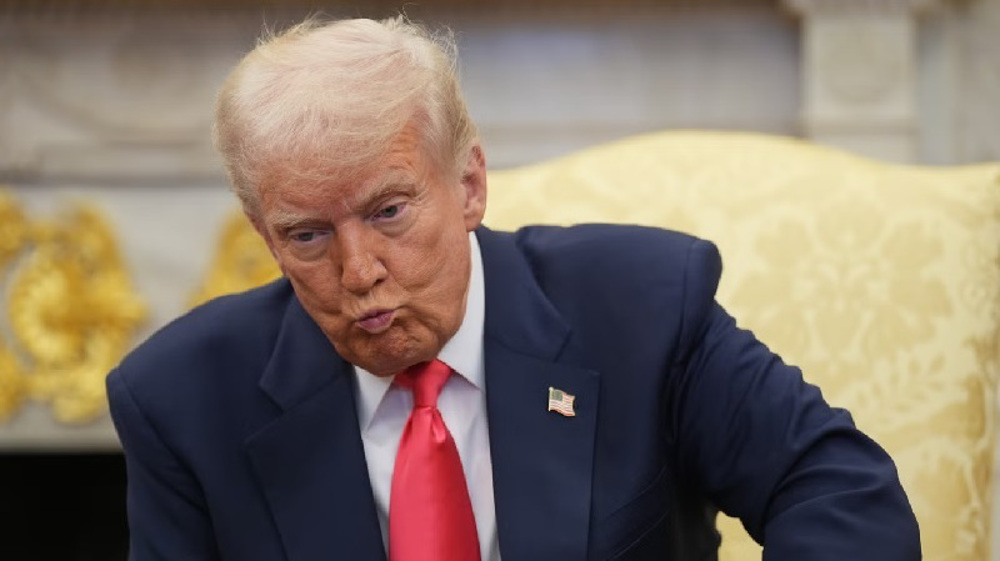
Trump ratings low amid US economic turmoil
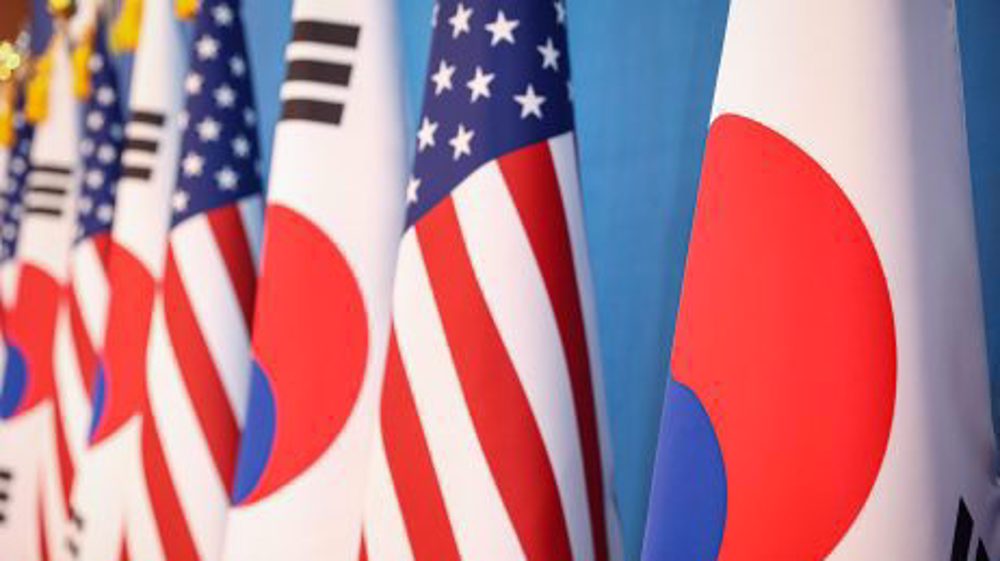
US-South Korea trade tensions

Microsoft collaboration in Gaza genocide
Gaza food reserves fully drained by Israeli aid blockade, warns WFP
Israeli forces kill Palestinian teenager in occupied West Bank
US government deports two-year-old citizen 'with no meaningful process'
Spain granted 46 contracts to Israeli military firms since Gaza war began: Report
Yemeni ballistic missile triggers sirens across Israeli-occupied territories
VIDEO | Press TV's news headlines
VIDEO | Russia to begin gas supplies to Iran via Azerbaijan, boosting energy ties
VIDEO | Protesters in Damascus slam Arab silence on Gaza


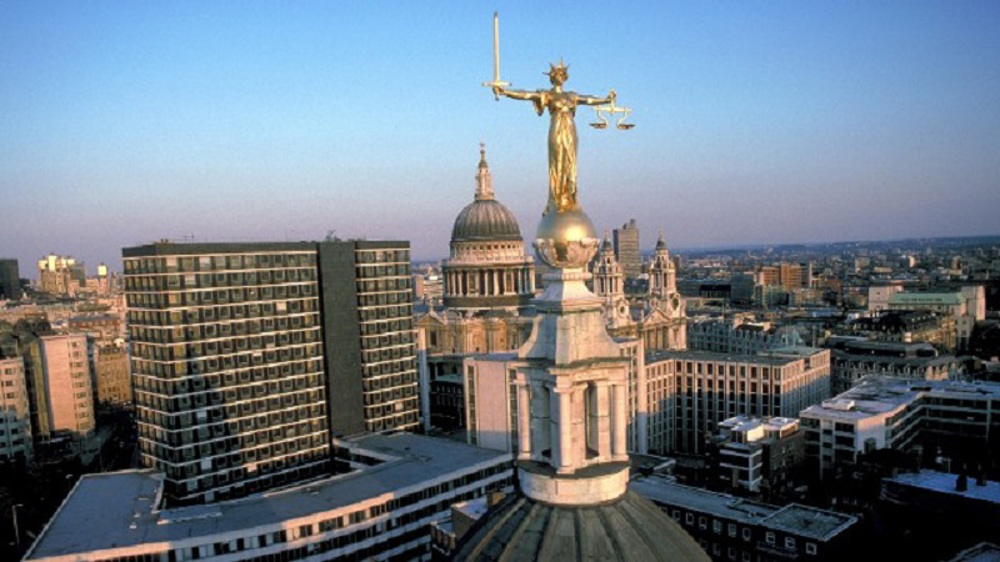
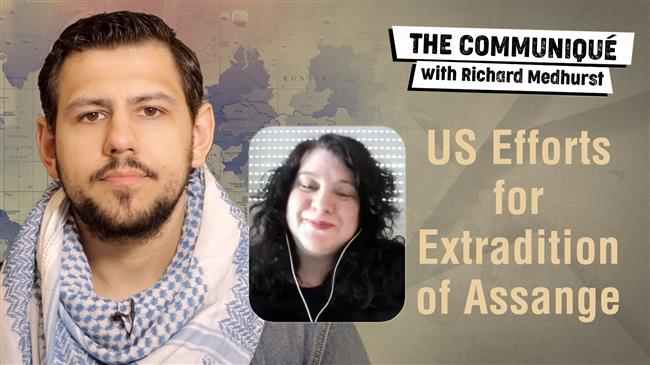
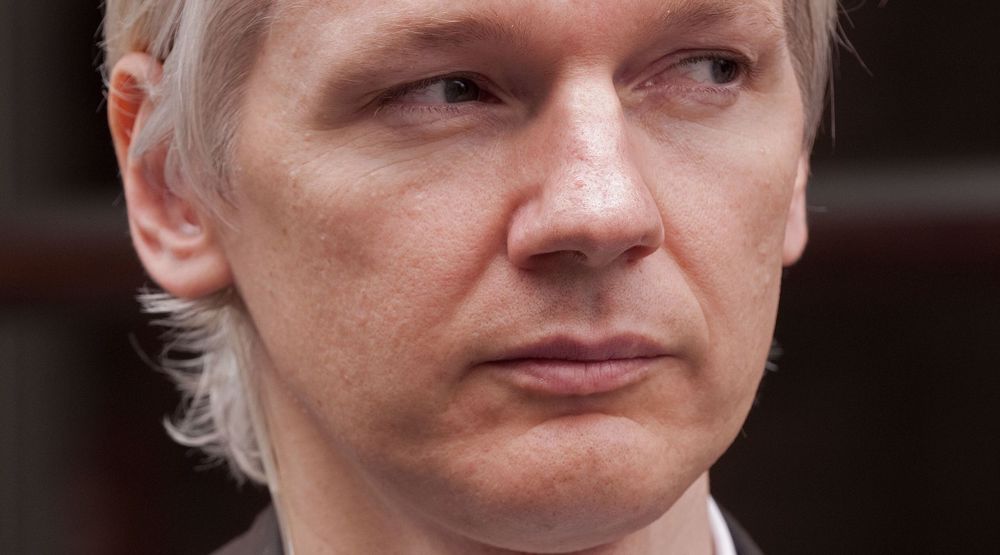
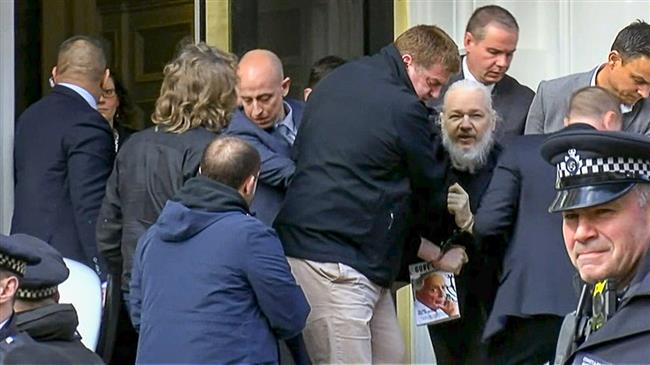
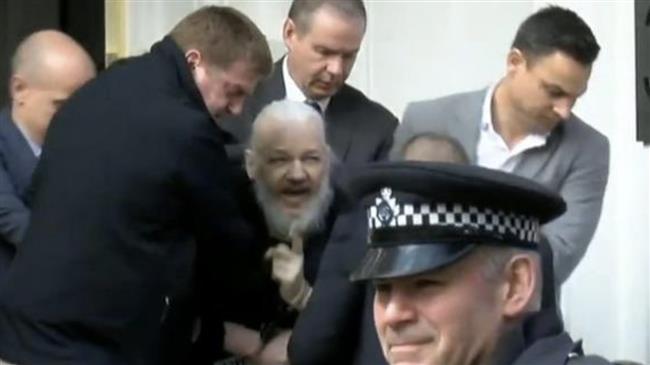
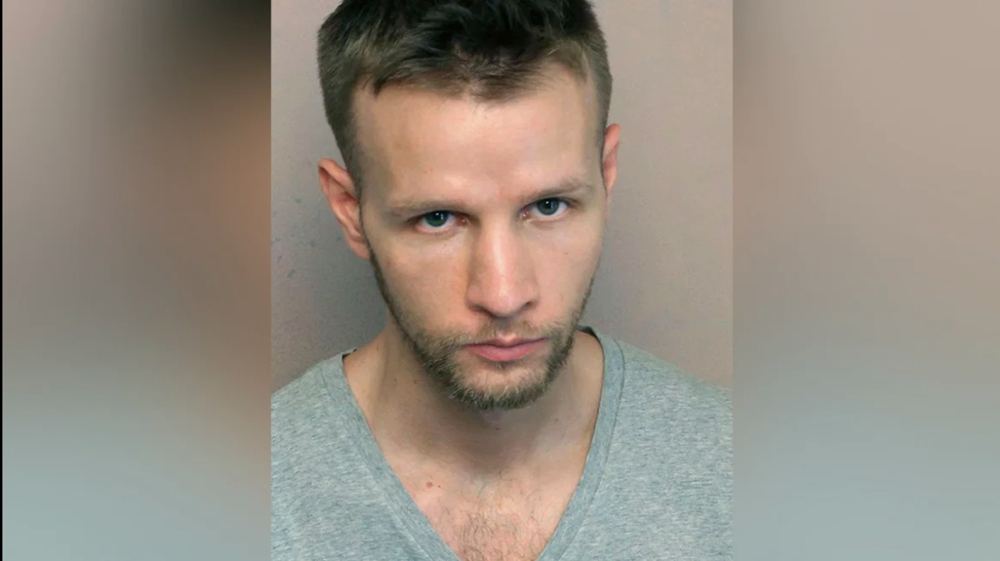
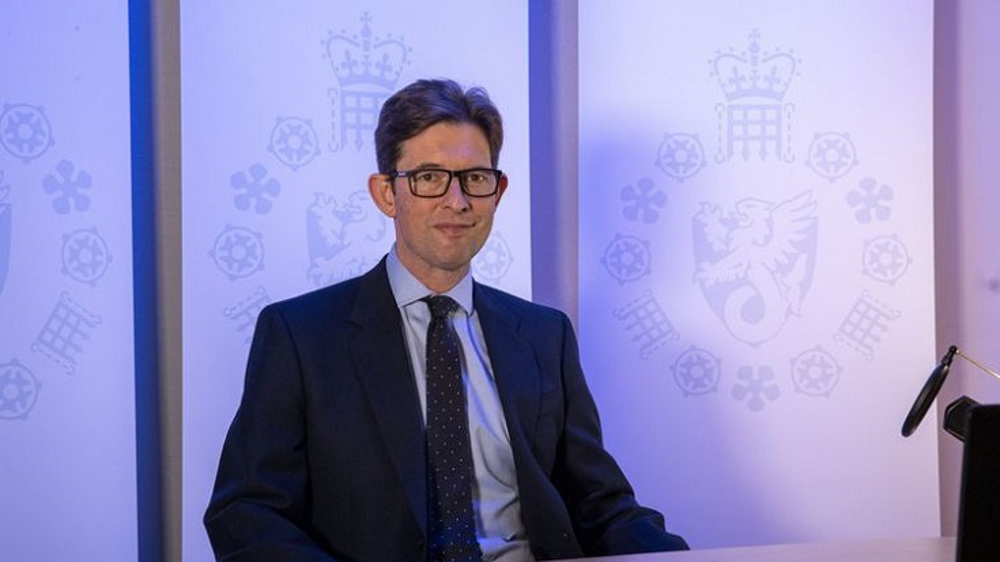
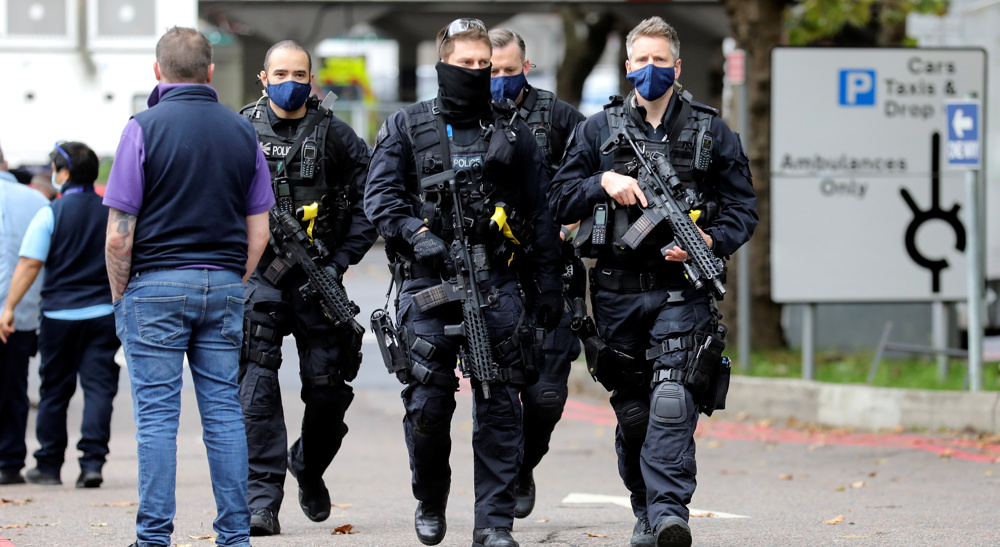

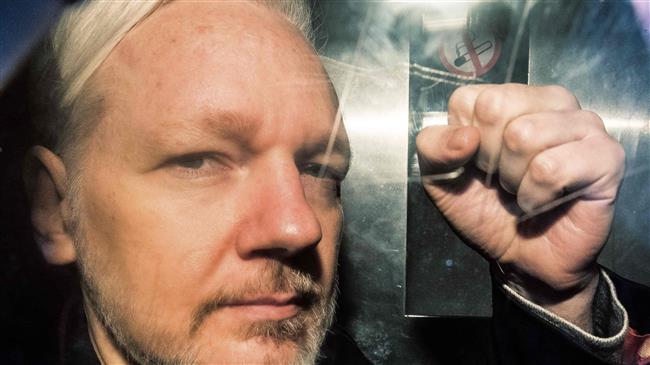
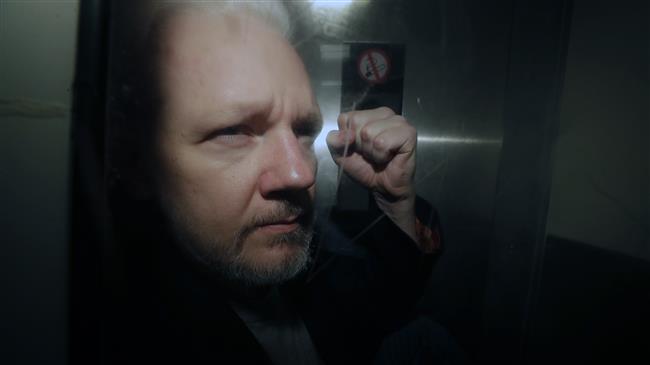
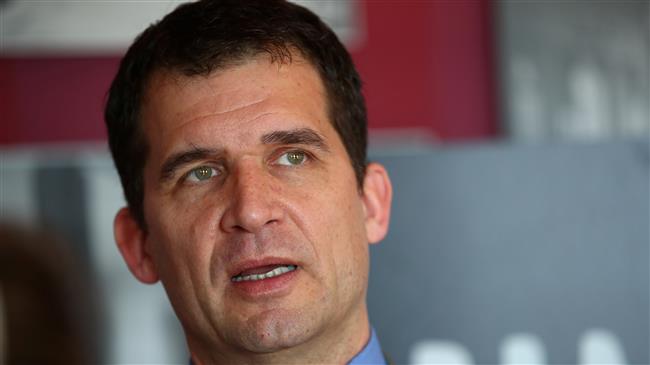
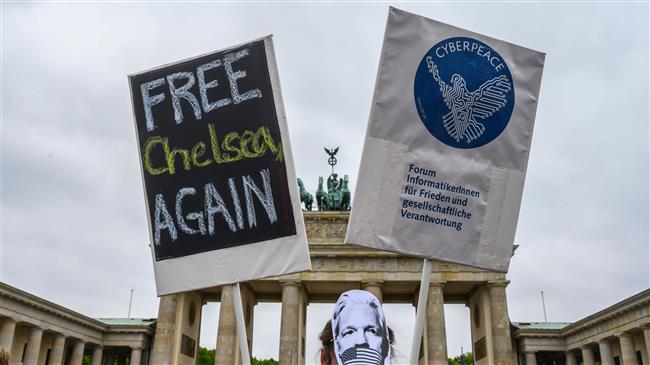

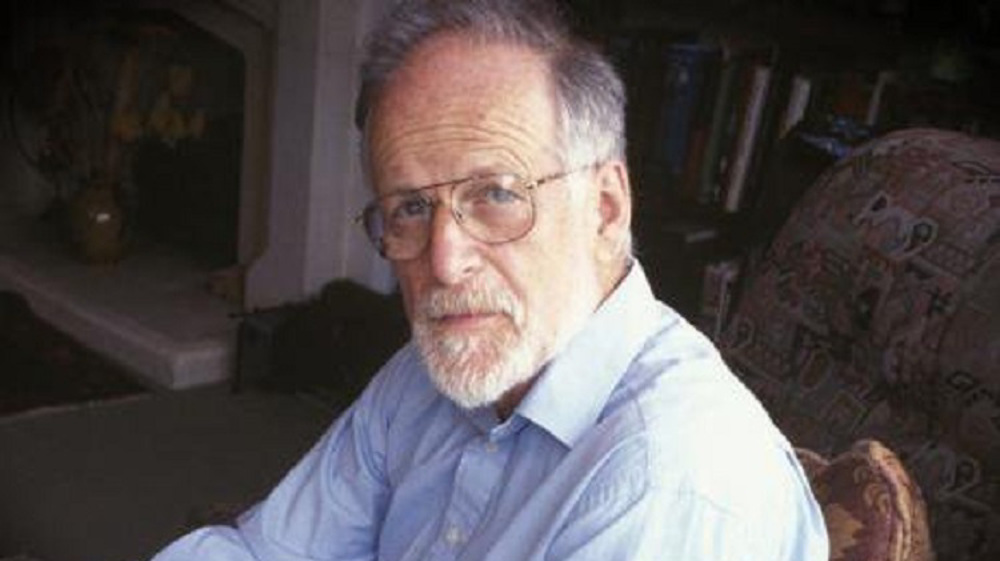




 This makes it easy to access the Press TV website
This makes it easy to access the Press TV website